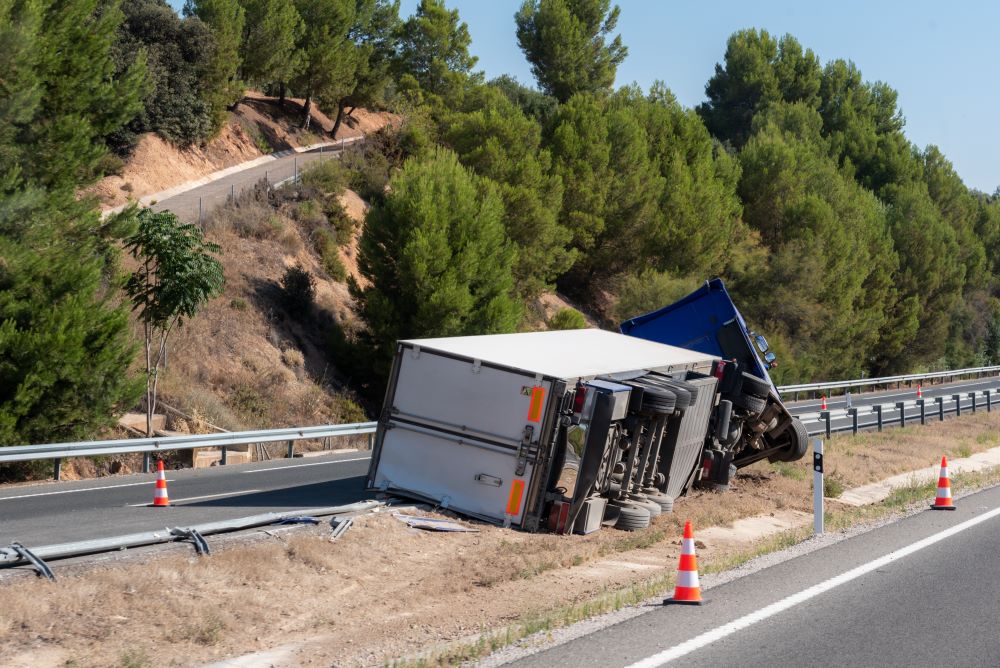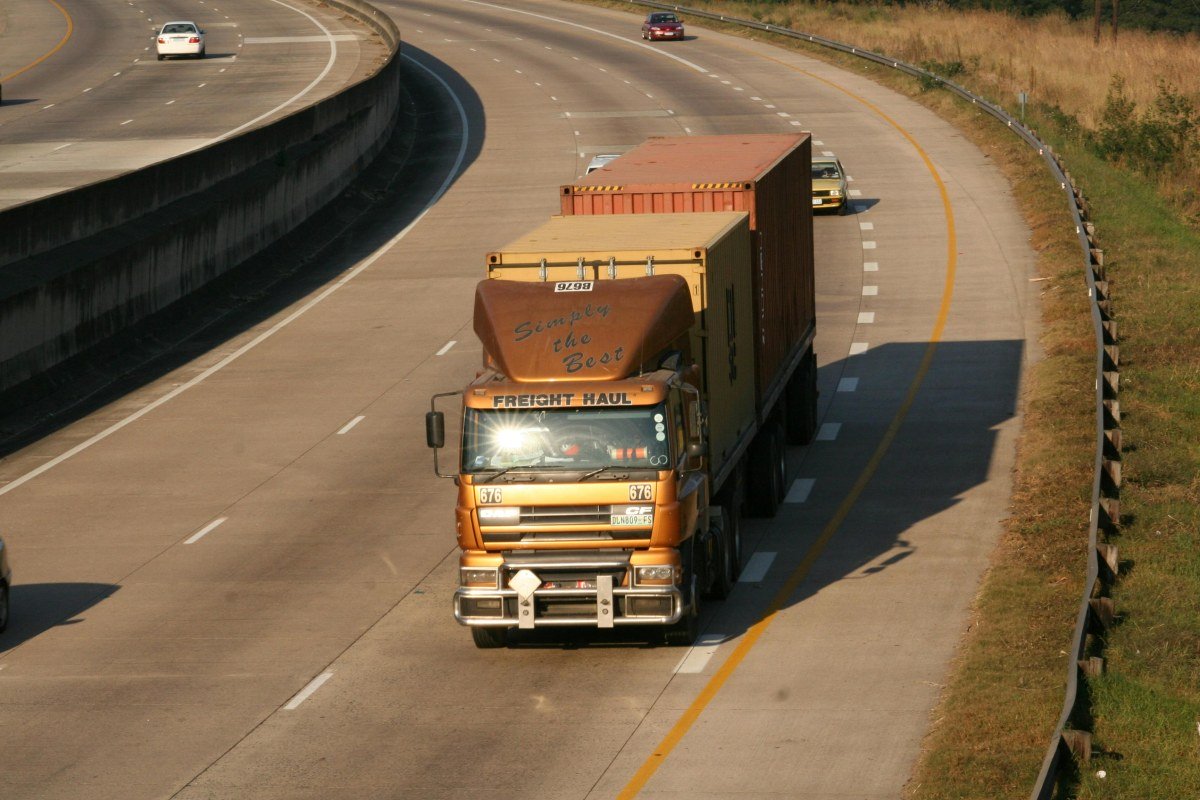In the trucking industry, it’s standard practice for companies to haul trailers they don’t own. Whether you’re an independent operator or part of a larger fleet, handling non-owned trailers comes with unique risks. If a trailer in your care is damaged, trailer interchange coverage can protect you by covering repair costs and preventing disruptions to your cash flow.
But what exactly is trailer interchange coverage, and do you need it? In this guide, we’ll explain the essentials of trailer interchange insurance and why it’s a critical safeguard for your trucking business.
What is Trailer Interchange Coverage
Trailer interchange coverage is a specialized commercial trucking insurance that protects against physical damage to non-owned trailers or shipping containers in your custody, whether attached to your vehicle or not. It also extends to trailers you own temporarily in another party’s possession, provided there’s a signed trailer interchange agreement.
Similar to commercial truck cargo insurance, it shields your business from liability for various types of physical damage, including:
- Collisions
- Theft
- Fire
- Vandalism
- Explosions
- Natural events, such as floods and lightning
- Cargo shifts that lead to damages
- Damages when loading and unloading freight, and more.
Who Needs Trailer Interchange Insurance?
Trailer interchange insurance is crucial for businesses using non-owned trailers, such as independent truckers, freight forwarders, intermodal operators, and leasing companies.
It helps protect your cash flow by covering damage to trailers under your care, eliminating the need for out-of-pocket expenses. In these arrangements, the trucker in possession of the trailer is responsible for any damages incurred during transit.

How Trailer Interchange Agreements Work
A trailer interchange insurance policy requires a signed agreement, a formal contract that enables motor carriers to transfer trailers and complete shipments efficiently. The agreement ensures each party assumes responsibility for trailer damage while the trailer is in their possession, even if they don’t own it.
These agreements make long-distance, multi-carrier deliveries faster, safer, and more economical. For instance, instead of one trucker driving 50+ hours from Seattle to Miami, multiple carriers can share responsibility under the agreement. Each carrier is accountable for the trailer’s condition while it’s in their control, streamlining operations and defining clear roles in the contract.
Elements of a Trailer Interchange Agreement
There are three fundamental elements of a written trailer interchange agreement. These define the roles and responsibilities of participating parties:
- The duration and terms. Agreements can be made for one consignment, closing once the goods get delivered. Or, they might be standing or evergreen, covering recurring transfers for several trailers.
- Each party’s obligations. This clarifies the maintenance responsibilities and return of the trailer.
- Insurance and licensing requirements.
Requirements for Trailer Interchange Insurance Coverage
Besides the basic insurance filing requirements outlined by the Federal Motor Carrier Safety Administration (FMCSA), you need the following to qualify for trailer interchange insurance coverage:
- A signed copy of the Trailer Interchange Agreement outlining all contractual obligations
- Accurate trailer valuations
- Regulatory compliance with specific state insurance regulations
- Liability insurance. The trailer owner needs to have liability coverage for cargo damages or theft.
- Number of trailers. You must have at least one trailer(whether you own it or not) insured for every pickup or trailer.
Limits, Deductibles, and Other Coverage Details
When selecting a trailer interchange insurance policy, it’s essential to consider your policy limits and deductibles. The policy limit is the maximum amount your insurer will cover for trailer damage while it’s in your care. The deductible is the out-of-pocket amount you agree to pay toward repair or replacement costs.

For example, with a $35,000 policy limit and a $2,000 deductible, if a trailer under your care is damaged, you would pay $2,000, and your insurer would cover the remaining $33,000.
However, trailer interchange coverage has certain exclusions. It does not cover:
- Bodily injury
- Third-party property damage
- Personal use of a rented trailer
- Damage occurring without cargo
Understanding these limitations ensures you’re fully prepared and appropriately insured.
Non-Owned Trailer Coverage vs. Trailer Interchange Insurance
Understanding the difference between non-owned trailer coverage and trailer interchange insurance is essential for choosing the right protection.
Both cover physical damage to trailers you don’t own, but trailer interchange insurance requires a written agreement and applies to trailers whether attached, in storage, loaded, or parked. Non-owned trailer coverage, however, only applies when the trailer is attached to your tractor and doesn’t require an agreement.
Non-owned trailer insurance also covers situations trailer interchange insurance doesn’t, such as third-party property damage, bodily injury, or personal use of borrowed trailers.
Having both policies is often beneficial, as they complement each other. For example, if an accident damages a trailer and causes injuries or property damage, non-owned trailer coverage would address claims beyond the trailer, protecting your business from major financial loss.
Challenges and Special Considerations in Trailer Interchange Insurance
Many shippers own, store, and control their trailers but don’t wish to get involved in the trucking business. Instead, they hire transportation services to transport their freight to its final destination under a power-only agreement.
A power-only agreement is a legal arrangement between a shipping company and a motor carrier, where the carrier provides a driver and tractor but not the trailer. Since the carrier will be handling a trailer owned by another company, most insurers offer special considerations for these arrangements and provide trailer interchange insurance or non-owned coverage options.

You must understand these considerations to ensure you get the right coverage for the type of trucking operations you’re involved in. Also, be keen to investigate the premiums and deductibles insurers offer. Most companies will set high deductibles and premiums to manage the risks of trailer exchanges.
How Much Does Trailer Interchange Insurance Cost?
Several factors determine the amount you’ll pay for trailer interchange insurance in the same way they influence the cost of other commercial truck insurance coverage options. Some of these include:
- Coverage limits. Higher insurance limits will give you more protection but increase your monthly or annual premiums.
- Deductibles. High deductibles generally lower your insurance costs and increase out-of-pocket payments during claims.
- Trailer value. Trailers with a higher value increase the potential insurance payout, which leads to higher insurance costs.
- Location. High-risk areas, such as regions with high theft rates or those prone to harsh weather may fetch higher premiums.
- Type of freight. Moving hazardous goods or those with high value can increase insurance costs.
- Claim history. Many claims can increase your premiums because of perceived higher risk.
- Frequency of use. Frequent trailer exchanges or use increases the risk of accidents, which can raise premiums.
You can expect to pay $1,000 to $1,500 annually for trailer interchange insurance limits ranging from $20,000 to $30,000.
Final Thoughts
Trailer interchange coverage safeguards your business and finances when using non-owned trailers. However, the insurer’s payout is capped at the trailer’s value at the time of loss, so over-insuring wastes money, while under-insuring could leave you with significant out-of-pocket costs.
To avoid these pitfalls, research thoroughly and choose an insurer offering high-quality policies with appropriate limits at competitive rates. Here are some tips to find cost-effective coverage without sacrificing quality.
For more tips on navigating commercial trucking insurance, visit the Mission Financial Services blog. We’ve prepared several guides to help you protect your business adequately and thrive.



